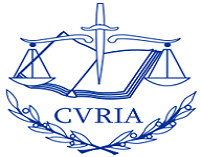Same-sex civil partners cannot be denied employment benefits reserved to marriage
14 12 2013
 ILGA-Europe's statement regarding the judgemnt of the Court of Justice of the European Union in case of Frédéric Hay v Crédit agricole mutuel de Charente-Maritime et des Deux –Sèvres.
ILGA-Europe's statement regarding the judgemnt of the Court of Justice of the European Union in case of Frédéric Hay v Crédit agricole mutuel de Charente-Maritime et des Deux –Sèvres.
ILGA-Europe welcomes the EU Court of Justice judgement confirming that employees in same-sex civil partnerships cannot be denied employment related benefits reserved to married partners
On 12 December 2013, the Court of Justice of the European Union (CJEU) ruled that employers cannot deny their employees in same-sex civil partnerships benefits which are granted to married employees: case ofFrédéric Hay v Crédit agricole mutuel de Charente-Maritime et des Deux –Sèvres.
Facts: Mr Hay is an employee of Crédit agricole mutuel, whose collective agreement grants certain benefits – days of special leave and a salary bonus – to employees on the occasion of their marriage. Mr Hay, who had entered into a PACS arrangement (civil solidarity pact) with his same-sex partner, was refused those benefits on the ground that, under the collective agreement, they were granted only upon marriage.
ILGA-Europe welcomes this judgment which confirms the principle established by the CJEU in its earlier jurisprudence (1) that excluding same-sex partners in civil partnerships from employment related benefits granted to married partners only constitute direct discrimination on the grounds of sexual orientation under the EU employment equality directive.(2)
Another significance of this judgment is that it applies in the context of the French civil solidarity pact (PACS), which is significantly inferior to marriage in terms of the rights and protections associated with it: the Court ruled that in countries which do not allow same-sex couples to marry (which was the case of France at the time of the case), same-sex partnerships should have access to employment benefits granted to married couples, including where the partnership legislation cannot be regarded as comprehensively equivalent to marriage.
In the 2008 Maruko case the CJEU firstly looked if the German life partnership was comparable to marriage before concluding that treating married and same-sex life partners differently constitutes direct discrimination. Therefore the Maruko judgment left a possibility of interpreting weaker forms of civil partnership laws in other countries, like the PACS in France, as not being comparable to marriage.
With the Hay judgement the CJEU is clearly stating that when same-sex partners cannot get married, any forms of legal recognition of same-sex partnerships, are comparable to marriage for the purpose of granting employment benefits. Reserving such benefits exclusively to married partners is a direct discrimination banned by the EU employment equality directive.(2)
(1) In 2008, the CJEU ruled in the case of Tadao Maruko v. Versorgungswerk der deutschen Bühnenthat under the EU equality legislation refusal to grant the survivor’s pension to registered same-sex partners and allowing it for married partners constitutes direct discrimination on grounds of sexual orientation.
(2) Council Directive 2000/78/EC of 27 November 2000 establishing a general framework for equal treatment in employment and occupation
(3) More on ILGA-Europe’s litigation in the European Courts work.
Brussels
13 December 2013
Source
Photo

GRADATION - installation for The Trans Day of Remembrance

Queer Sisters Run - Social and Environmental Justice







